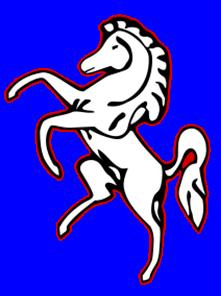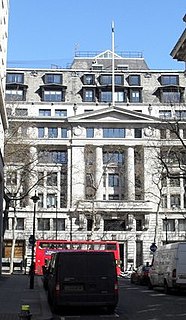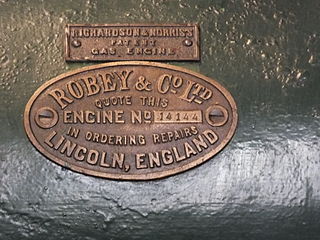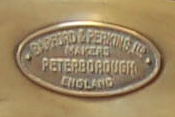
A traction engine is a steam-powered tractor used to move heavy loads on roads, plough ground or to provide power at a chosen location. The name derives from the Latin tractus, meaning 'drawn', since the prime function of any traction engine is to draw a load behind it. They are sometimes called road locomotives to distinguish them from railway locomotives – that is, steam engines that run on rails.

A steamroller is a form of road roller – a type of heavy construction machinery used for leveling surfaces, such as roads or airfields – that is powered by a steam engine. The levelling/flattening action is achieved through a combination of the size and weight of the vehicle and the rolls: the smooth wheels and the large cylinder or drum fitted in place of treaded road wheels.

The Austin Sixteen Light Six is a British car that was made by Austin from 1927. Announced in October 1927, the first deliveries were planned for March 1928.

Marshall, Sons & Co. was a British agricultural machinery manufacturer founded in 1848. The company was based in the Britannia Iron Works, Gainsborough, Lincolnshire. Early production was of steam engines and agricultural machinery. Later production included diesel tractors such as the Field Marshall, Track Marshall and former Leyland wheeled tractors.

Ruston & Hornsby was an industrial equipment manufacturer in Lincoln, England founded in 1918. The company is best known as a manufacturer of narrow and standard gauge diesel locomotives and also of steam shovels. Other products included cars, steam locomotives and a range of internal combustion engines, and later gas turbines. It is now a subsidiary of Siemens.

Aveling and Porter was a British agricultural engine and steamroller manufacturer. Thomas Aveling and Richard Thomas Porter entered into partnership in 1862, and developed a steam engine three years later in 1865. By the early 1900s, the company had become the largest manufacturer of steamrollers in the world.
Francis Arthur "Frank" Perkins was a British engineer, businessman, creator of the Perkins Diesel Engine, and founder of Perkins Engines.

Karrier was a British marque of motorised municipal appliances and light commercial vehicles and trolley buses manufactured at Karrier Works, Huddersfield, West Yorkshire, by Clayton and Co., Huddersfield, Limited. They began making Karrier motor vehicles in 1908 in Queen Street South, Huddersfield. In 1920, H.F. Clayton sold Clayton and Co's Huddersfield business into public listed company Karrier Motors while keeping their Penistone operation separate and mechanical and electrical engineers Clayton & Co Penistone remains active in 2018.

Gwynnes Limited was a City of London England engineering business, iron founders and pump makers founded in 1849 to capitalise on the centrifugal pump invented by James Gwynne (1804–1850). In 1856 his eldest son, J E A Gwynne, of Essex Street Wharves on the south side of The Strand was awarded a patent for the manufacture of carbon or charcoal powder. Their Strand site became part of the Victoria Embankment built between 1865 and 1867 and Gwynne profited from judicious investment in the reclaimed land. Their Crisp Road, Hammersmith Ironworks and works at Church Wharf, Chiswick, London, were established in 1867 to specialise in the manufacture of these centrifugal pumps and pumping engines This machinery was for use in practically all purposes where large or small quantities of liquid were required to be lifted and dealt with for low or high heads. A limited liability company was formed in May 1897 to own the business.

Aveling-Barford was a large engineering company making road rollers, motorgraders, front loaders, site dumpers, dump trucks and articulated dump trucks in Grantham, England. In its time, it was an internationally known company.

White and Poppe Limited owned a Coventry proprietary engine building and gearbox manufacturing business established in 1899. Many early motor vehicle manufacturers making only a small number of vehicles bought in their major components and White and Poppe soon had a large customer base and by 1914 a staff of around 350 people. By then the number of these customers, once as high as 15 or more, had fallen away though not the production volume leaving Dennis Brothers, always an important customer, taking much of their output.

Richard Garrett & Sons was a manufacturer of agricultural machinery, steam engines and trolleybuses. Their factory was Leiston Works, in Leiston, Suffolk, England. The company was founded by Richard Garrett in 1778.

Agricultural & General Engineers Limited (AGE) was a holding company formed on 4 June 1919 during a postwar economic "boom" to combine five British engineering companies: Aveling & Porter, E H Bentall, Blackstone, Richard Garrett and J & F Howard. The holding company's business was described to the judge considering its 1932 winding up as: "agricultural, transport, road, constructional and general engineers".

Blackstone & Co. was a farm implement maker at Stamford, Lincolnshire, United Kingdom.

Perkins Engines Company Limited, a subsidiary of Caterpillar Inc, is primarily a diesel engine manufacturer for several markets including agricultural, construction, material handling, power generation and industrial. It was established in Peterborough, England, in 1932. Over the years Perkins has expanded its engine ranges and produces thousands of different engine specifications including diesel and petrol engines.

Ransome & Marles Bearing Company Limited was the owner of a business making ball and roller bearings founded during the First World War to make bearings for aircraft and other engines. Before the war most bearings had been imported and most of those were from Germany.
Peter Hooker Limited owned an engineering business originally established in 1827 and carried on under the name Messrs Peter Hooker as printers' engineers at 12 Pump Row, Old Street Road, St Luke's, later at Pear Tree Court, Farringdon Road, London EC. The limited liability company was formed to own it in 1900. Operations were moved to Black Horse Lane Walthamstow, Essex, in 1901.

Peter Brotherhood (1838–1902) was a British engineer. He invented the Brotherhood engine used for torpedoes as well as many other engineering products.

Robey and Co. was an engineering company based in Lincoln, England which can be traced back to at least 1849.




















